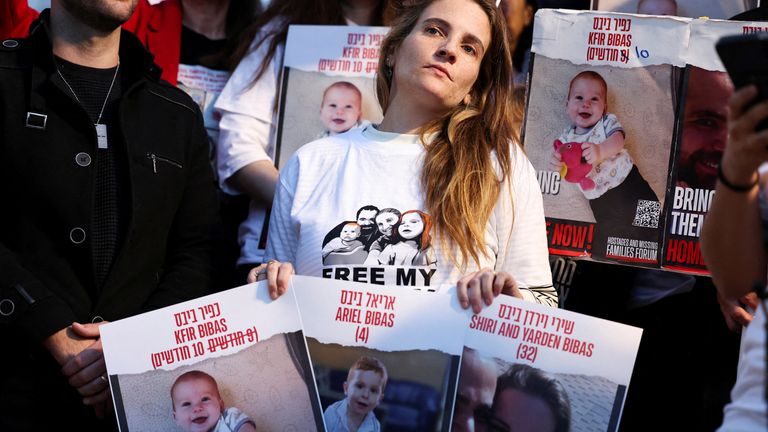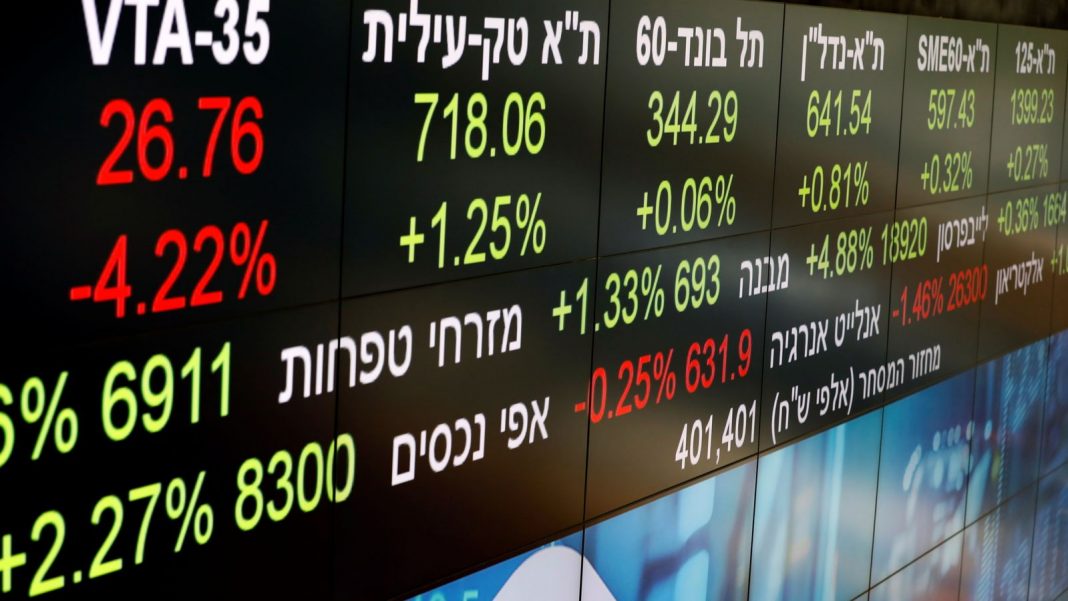A report saying some investors may have known in advance about Hamas’s plan to attack Israel on 7 October and used that knowledge to make hundreds of millions of pounds is inaccurate and its publication was irresponsible, the Tel Aviv Stock Exchange has said.
Research by US law professors Robert Jackson Jr from New York University and Joshua Mitts from Columbia University had found significant short-selling of shares leading up to the attack, which sparked a war that has lasted for nearly two months.
“Days before the attack, traders appeared to anticipate the events to come,” the authors wrote, citing short interest in the MSCI Israel Exchange Traded Fund (ETF) they say “suddenly, and significantly, spiked” on 2 October.
“And just before the attack, short selling of Israeli securities on the Tel Aviv Stock Exchange (TASE) increased dramatically,” they added.
Israel-Gaza latest: Israel responds to US warning about war
Please use Chrome browser for a more accessible video player
0:34
Israeli hostage reunited with school friends
The researchers said short-selling prior to 7 October “exceeded the short-selling that occurred during numerous other periods of crisis”, including the recession following the financial crisis of 2008, the 2014 Israel-Gaza war and the COVID pandemic.
They gave the example of Leumi, Israel’s largest bank, which saw 4.43 million new shares sold short over the 14 September to 5 October period, yielding profits of 3.2bn shekels (£680m) on that additional short-selling.
What is shorting?
Short sellers are investors who bet on a fall in the price of a security, in this case a stock.
They typically do this by borrowing shares in a particular company and then selling them.
If the share price falls, they will then buy those shares back at the lower price, sealing in their profit.
The shares are then returned to the original investor from whom they were borrowed.
However, TASE said the authors had made a miscalculation, as share prices are listed in agorot, which are similar to pennies, rather than shekels – putting the potential short sale profit at just 32m shekels (£6.8m).
Yaniv Pagot, head of trading at the exchange, said in looking at short interest in Leumi, there was an increase of
some 4.5 million shares in the week ending 21 September and it then remained stable.
“I don’t see in the data something even close to what they wrote in the paper,” Mr Pagot told Reuters, adding the researchers did not speak to the TASE or members.
“There was nothing unusual in short positions in the stock exchange in the two months before the attack.”
Read more:
Israeli girl returns to kindergarten after 49 days as hostage
Medics ‘did not know how to deal with’ traumatised child hostages
Gaza ‘split into three’ as Israel pushes deeper into south

Protesters call for the immediate release of Israeli hostages (file image)
Researcher says issue did not affect ‘highly unusual’ activity
Mr Mitts told Reuters the 67-page report, Trading on Terror?, had been corrected, but the currency issue did not affect the “highly unusual” exchange-traded fund (EGF) and short-dated options activity also identified by the researchers.
Mr Pagot said he did not understand “the theory about the ETFs”.
He also said the short position in Leumi was taken by an unidentified Israeli bank known to the TASE.
“We know their compliance is very strict so it’s unlikely that such a position that came from a terror organisation can pass through this member’s compliance for money laundering or something like that,” he said, referring to media speculation Hamas itself was behind the short selling.
Israel’s securities regulator said it was aware of the report and the matter was “under investigation by all the relevant parties”.







